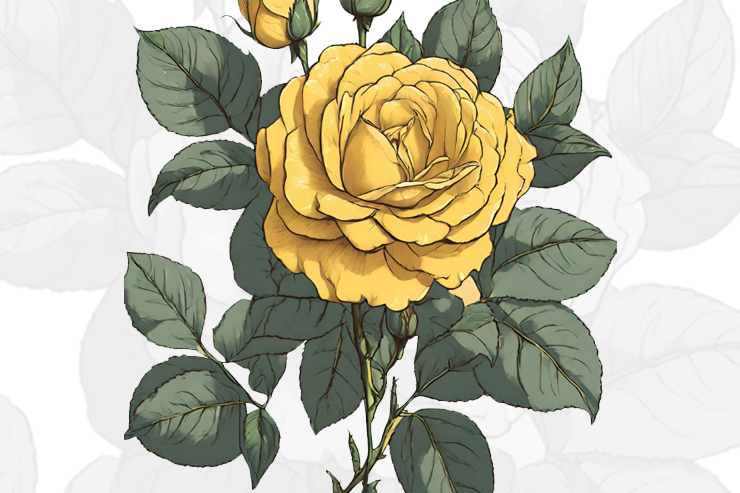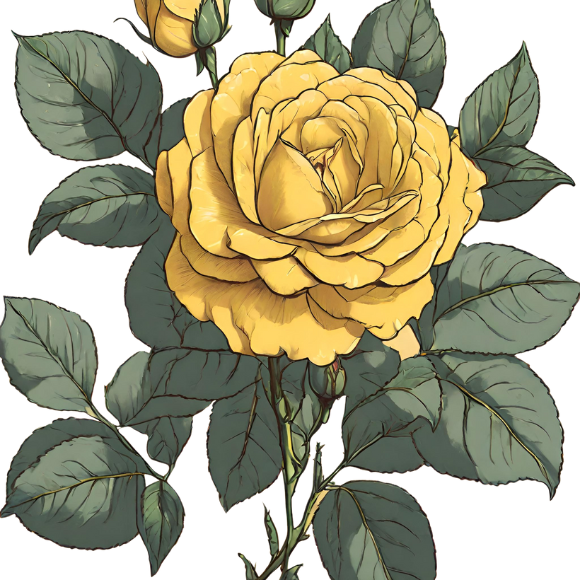
Roses, often referred to as the “queen of flowers,” have captivated the hearts of gardeners for centuries with their timeless beauty and enchanting fragrance. While the allure of roses is undeniable, cultivating a flourishing rose garden requires dedication, knowledge, and a mindful approach to care. Here are the fundamentals of rose care, providing both novice and experienced gardeners with the essential knowledge needed to nurture healthy, vibrant roses and create a stunning rose garden.

Choosing the Right Roses:
- Selecting the Right Varieties: Before delving into the intricacies of rose care, it’s crucial to choose rose varieties that are well-suited to your climate and garden conditions. Consult local nurseries or extension services for recommendations on varieties that thrive in your specific region.
- Understanding Types of Roses: Roses come in various types, each with its unique characteristics. Common types include Hybrid Teas, Floribundas, Grandifloras, Shrub Roses, and Climbers. Consider the space available in your garden, your desired aesthetic, and the purpose of the roses (e.g., cut flowers, landscaping) when selecting types.
Planting Roses:
- Choosing the Right Location: Roses thrive in locations with at least six hours of direct sunlight per day. Ensure the chosen area has well-drained soil to prevent waterlogged roots, which can lead to diseases. Good air circulation is also essential for minimizing the risk of fungal issues.
- Preparing the Soil: Well-prepared soil is the foundation for healthy roses. Incorporate organic matter like compost to improve soil structure and drainage. Conduct a soil test to assess pH levels and amend as needed. Aim for slightly acidic to neutral soil (pH 6.0-7.0).
- Planting Depth and Spacing: When planting container-grown roses, dig a hole slightly larger than the container and place the rose at the same depth it was in the pot. Space roses according to their mature size, allowing for good airflow between plants.
Watering Practices:
- Consistent Watering: Adequate and consistent watering is crucial for the health of your roses. Water deeply at the base of the plant, avoiding overhead watering, which can lead to fungal diseases. Water early in the day to allow foliage to dry before evening.
- Mulching: Apply a layer of organic mulch, such as bark or compost, around the base of the roses. Mulching helps retain soil moisture, suppress weeds, and regulate soil temperature. Keep the mulch a few inches away from the base of the plants to prevent rot.
Fertilizing Roses:
- Feeding Schedule: Roses are heavy feeders and benefit from regular fertilization. Start feeding in early spring as new growth begins, and continue throughout the growing season. Use a balanced, slow-release fertilizer formulated for roses or a general-purpose fertilizer with added micronutrients.
- Additional Nutrient Boosts: Supplement regular fertilization with organic amendments like well-rotted manure or compost. Bone meal is an excellent source of phosphorus, promoting strong root development and robust blooms.
Pruning and Training Roses:
- Pruning Timing: Pruning is a vital aspect of rose care, promoting healthy growth, blooming, and shape. The timing of pruning depends on the type of rose. Generally, prune in late Winter or early spring before new growth emerges.
- Basic Pruning Techniques: Remove dead, diseased, or damaged wood, as well as any crossing or inward-growing branches. Cut at a 45-degree angle just above an outward-facing bud. Shaping the rose bush by removing old, woody canes encourages new growth.
- Training Climbers and Ramblers: Climbing roses benefit from proper training to encourage them to grow in the desired direction. Attach canes to supports like trellises or arbors, and periodically trim side shoots to maintain the desired shape.
Disease and Pest Management:
- Early Detection and Prevention: Regularly inspect your roses for signs of diseases such as black spot, powdery mildew, and rust. Early detection allows for prompt intervention. Choose disease-resistant rose varieties, provide adequate spacing for airflow, and practice good hygiene by removing fallen leaves.
- Organic Pest Control: Combat common pests like aphids, spider mites, and thrips with natural predators like ladybugs or by spraying a mixture of neem oil and water. Companion planting with insect-repelling plants, such as marigolds, can also help deter pests.
Winter Care:
- Winter Mulching: Protect your roses during the Winter by applying a layer of mulch around the base of the plants. Mulching helps insulate the soil, preventing temperature fluctuations that can damage roots.
- Pruning for Winter Dormancy: Late fall or early Winter is an ideal time for a final round of pruning. Remove dead or diseased wood and reduce the height of the bushes to prevent Winter damage from strong winds.
Specialty Rose Care Tips:
- Deadheading for Continuous Blooms: Deadheading, or removing spent blooms, encourages the production of new flowers. Snip the spent flowers just above a five-leaflet set to promote continuous blooming throughout the season.
- Harvesting Rose Blooms: When harvesting roses for bouquets, choose flowers that are just starting to open. Cut stems at a 45-degree angle and place them immediately in water. Remove excess foliage below the waterline to prevent bacterial growth.
Cultivating a beautiful and thriving rose garden requires a thoughtful and attentive approach to rose care. From selecting the right varieties and providing suitable growing conditions to implementing proper watering, fertilizing, and pruning practices, each aspect plays a crucial role in the overall health and vibrancy of your roses.
By incorporating the basics of rose care into your gardening routine, you can create a stunning garden that not only showcases the timeless beauty of roses but also becomes a source of pride and joy. As you embark on your journey of cultivating elegance through roses, remember that patience and consistent care are key to nurturing these exquisite blooms to their fullest potential. Whether you’re a seasoned rose enthusiast or a novice gardener, the rewards of a well-tended rose garden are boundless—a symphony of colors, fragrances, and the enduring charm of the queen of flowers.



